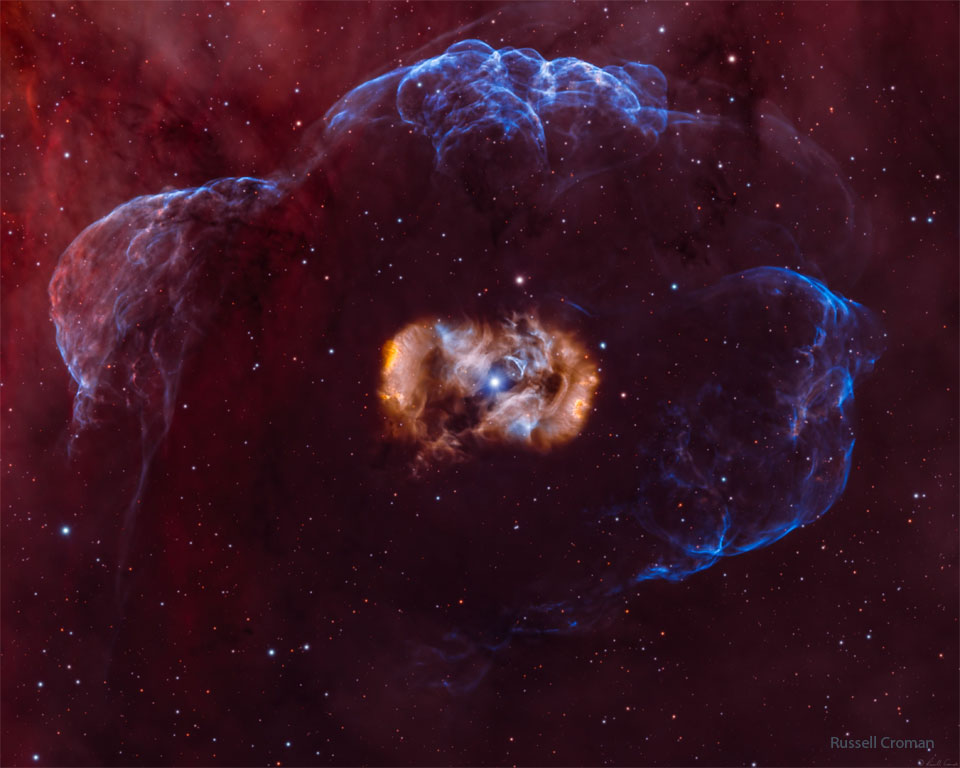NGC 6164: Dragons Egg Nebula and Halo
Discover the cosmos! Each day a different image or photograph of our fascinating universe is featured, along with a brief explanation written by a professional astronomer.
Image Credit & Copyright: Russell Croman
Explanation: The star at the center created everything. Known as the Dragon's Egg, this star -- a rare, hot, luminous O-type star some 40 times as massive as the Sun -- created not only the complex nebula (NGC 6164) that immediately surrounds it, but also the encompassing blue halo. Its name is derived, in part, from the region's proximity to the picturesque NGC 6188, known as the fighting Dragons of Ara. In another three to four million years the massive star will likely end its life in a supernova explosion. Spanning around 4 light-years, the nebula itself has a bipolar symmetry making it similar in appearance to more common planetary nebulae - the gaseous shrouds surrounding dying sun-like stars. Also like many planetary nebulae, NGC 6164 has been found to have an extensive, faint halo, revealed in blue in this deep telescopic image of the region. Expanding into the surrounding interstellar medium, the material in the blue halo was likely expelled from an earlier active phase of the O-star. NGC 6164 lies 4,200 light-years away in the southern constellation of the Carpenter's Square (Norma).
Authors & editors:
Robert Nemiroff
(MTU) &
Jerry Bonnell (UMCP)
NASA Official: Phillip Newman
Specific rights apply.
NASA Web
Privacy Policy and Important Notices
A service of:
ASD at
NASA /
GSFC,
NASA Science Activation
& Michigan Tech. U.
When you subscribe to the blog, we will send you an e-mail when there are new updates on the site so you wouldn't miss them.

